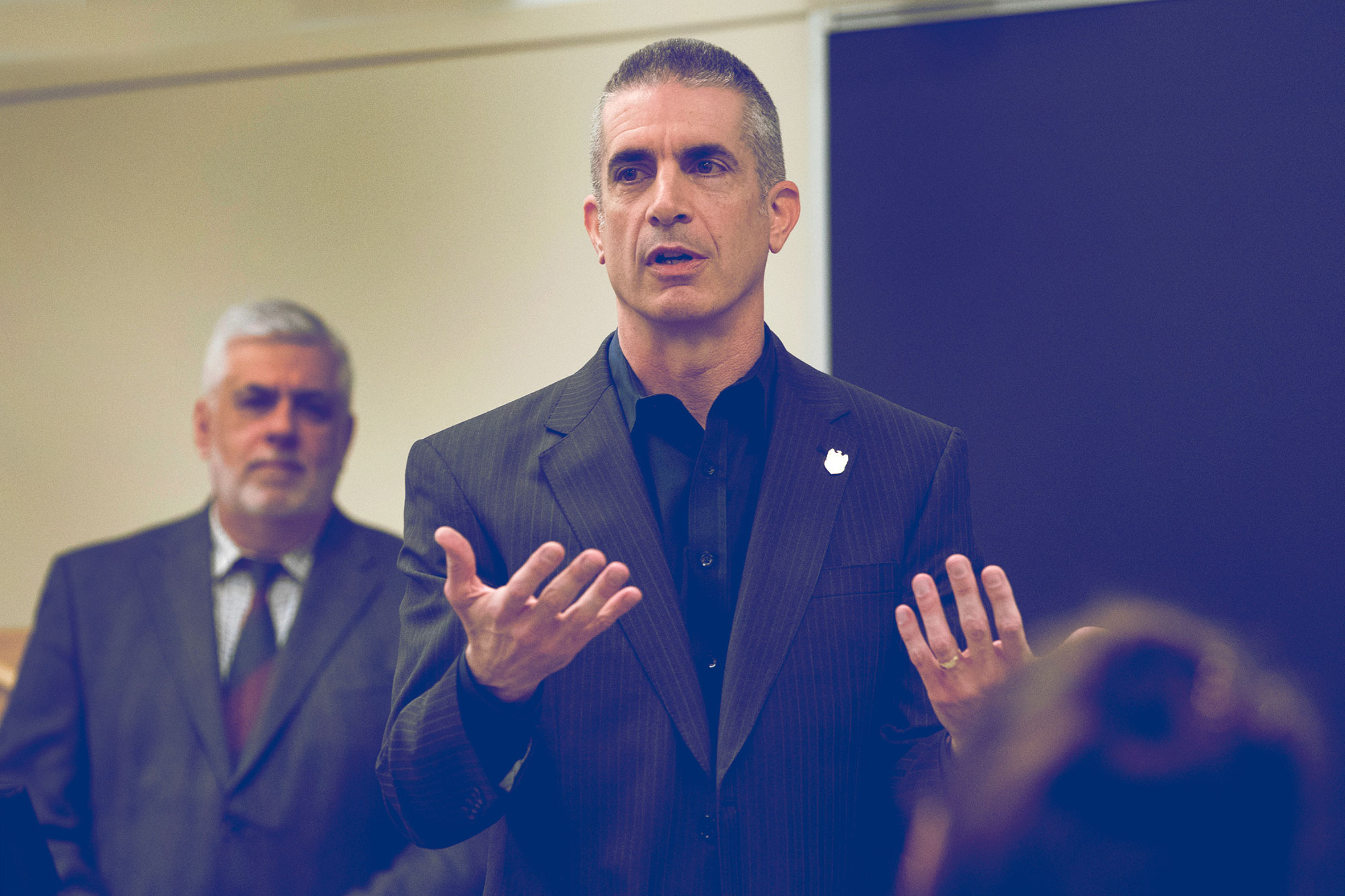Most Americans know of the Naval Criminal Investigative service, or NCIS, from the popular television show that bears its name. On Thursday, a small group of University of Virginia students got a rare glimpse into the real-life work of this vital government agency.
NCIS Director Andrew Traver spoke with students in adjunct professor Yuri Urbanovich’s “Russian Politics” course, offering a window into the important role his agency plays in ensuring national security. He spoke about how U.S.-Russia relations have evolved since the collapse of the Soviet Union, and more generally about how NCIS works to bolster national security around the globe.
“We’ve found in the last few years that cyber is everything,” Traver said. “In everything we do, there’s a cyber element.”

Traver explained that cyberspace is often the place where criminal activity crosses over into a national security threat. Among the agency’s major modern concerns are cyber criminals who use the digital landscape to exploit members of the U.S. Navy or Marine Corps. The stakes are high; if these criminals are able to obtain compromising information on service members with high security clearances, they may be in a position to blackmail them for classified information.
The agency also works to sniff out larger coordinated cyber attacks, such as Russia’s reported attempts to influence the American presidential election. In addition to its work in cyberspace, NCIS also investigates economic crime, sexual assault, piracy and homicide in 190 offices on land and afloat around the world. Agents go wherever there is a significant number of Navy or Marine Corps personnel. For students interested in this type of work, Traver said working for NCIS is a tremendous opportunity to see the world, but also requires a high level of dedication because of the travel, and in some cases the immense distance from family. Some agents have to be what he called “geographic bachelors,” working in small remote offices were Department of Defense regulations prevent them from bringing their families along. It can be a difficult, but very rewarding, career.
When recruiting agents, “we have to appeal to their sense of patriotism and their sense of being a part of something bigger than themselves,” Traver said.
His own drive to serve his country helped bring Traver to NCIS when he could have easily taken a position in the private sector after serving the Navy and then the Bureau of Alcohol, Tobacco, Firearms and Explosives for many years.
He encouraged students to think about how their own skill set might fit into such work, and emphasized that federal agencies like NCIS need people from diverse backgrounds and with different perspectives in order to be best equipped to take on global challenges.
Urbanovich’s students are gaining an important in-depth understanding of Russia’s political evolution that could make them even more useful to NCIS and other agencies as Russia continues to grow on the international stage.
After explaining the overarching goals of his organization, Traver stayed to take questions from students, further addressing how NCIS coordinates with other government agencies and how it makes connections with locals and allies at American naval ports.
By bringing in speakers like Traver, Urbanovich hopes to show the important practical uses for understanding Russian politics and the complex history and culture that helps shape it.
“One of my goals – especially as far as young Americans are concerned – is to help people better understand Russian-American relations,” he said. “It will enhance American standing in the world and aid our national security.”
Media Contact
Article Information
March 30, 2017
/content/ncis-charlottesville-agency-director-speaks-uva-students

